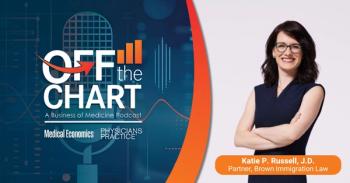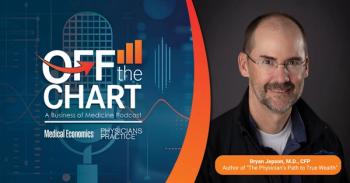
What We Can Learn About Work-Life Balance from Challenging Patients
Much like my patient, I often have spent precious moments creating responses to the unanswerable questions of "if only" and "what if."
I have an elderly patient who can be challenging. He is convinced that his high blood pressure does not require treatment and has failed to heed my warnings for the past two years that failure to treat his blood pressure may result in a heart attack or stroke.
Unfortunately, he recently suffered a stroke. Last week, he presented in follow up. He waited until about halfway through the visit before he let me know that if I was going to tell him "I told you so" he had his response all set to go. I think he spent so much time working on this response that when I reassured him that I had no intention of telling him "I told you so" and that I was very sorry he experienced this complication that he still couldn’t let it go and was compelled to share his well-rehearsed response anyway.
I feel badly, of course, that he spent her time worrying about this particular issue and am happy to allow him the time and chance to get what he needs to say off his chest. However, it made me think about the times that I myself spend a lot of time and energy wasted on something that isn’t an issue in the first place. When we discuss work-life balance, time is often our most precious resource, closely followed by energy. Therefore, when we waste either one, we make it that much more challenging to find balance.
Why do we do this to ourselves? Much like my patient, I suspect regret, fear, and pride play strong roles. We may regret the choice to stay late at the office with a patient instead of attending our child’s soccer game. Anticipating the recrimination that may wait for us at home, we may become defensive or wallow in self-condemnation and guilt.
Alternatively, we may fear what has happened or what will happen and try to weave together a response just in case. Since it is impossible to accurately predict what the next hour holds for us, let alone the next day, week, or month, this proves to be an exercise in futility. And finally, it is pride. We like to be right. We like to think that our decisions are good ones, even when fate or history prove us wrong. It can be very challenging to look at a mistake in our past or even just an accident and not try to rewrite history in a different way.
Much like my patient, I often have spent precious moments creating responses to the unanswerable questions of "If only" and "What if." This only causes increased frustration, anxiety, and stress. Instead, I would like to move forward, much like I encouraged my patient, grateful that there wasn't a worse outcome, thankful that better decisions can be made in the future, and gentle on myself for decisions I've made.
Newsletter
Optimize your practice with the Physicians Practice newsletter, offering management pearls, leadership tips, and business strategies tailored for practice administrators and physicians of any specialty.




